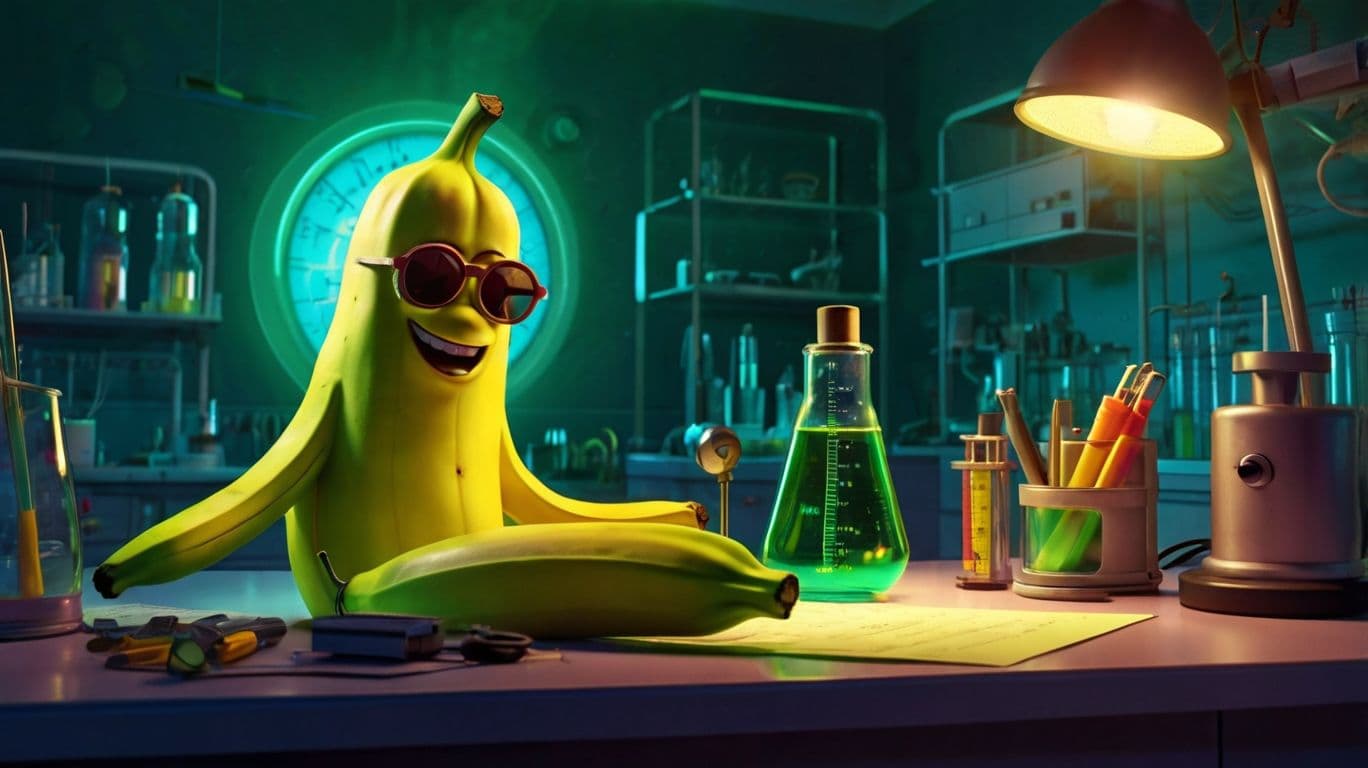Yes, you read that right — bananas are naturally radioactive. Before you swear off smoothies or start wearing a hazmat suit to the fruit aisle, let’s break down why this is true… and why it’s totally harmless.
⚛️ What Makes Bananas Radioactive?
Bananas contain potassium, an essential mineral that helps regulate your heartbeat, nerves, and muscles. But a tiny portion of the potassium in bananas exists as Potassium-40, a naturally occurring radioactive isotope.
Potassium-40 has a very long half-life (over a billion years) and undergoes radioactive decay, which releases small amounts of radiation. So technically, eating a banana gives you a tiny dose of radiation. But — and this is key — the amount is so small it’s completely safe.
🧪 What Is the “Banana Equivalent Dose”?
Scientists actually joke about radiation using something called the “Banana Equivalent Dose” (BED). It’s not a real scientific unit, but it’s a playful way to help people understand how small some radiation exposures are.

For example:
- 1 banana = ~0.1 microsieverts of radiation
- A chest X-ray = ~100 bananas worth of radiation
- A flight from New York to London = ~500 bananas
So unless you’re eating thousands of bananas a day (please don’t), your exposure is negligible.
☢️ Are Other Foods Radioactive Too?
Yep! Bananas aren’t alone. Many common foods are naturally radioactive because they absorb elements from the soil. Some examples:
- Brazil nuts (even more radioactive than bananas!)
- Potatoes
- Carrots
- Red meat
In fact, your entire body is slightly radioactive because of all the potassium and carbon inside you. But again — this is normal and totally safe.
🧠 So… Is Radiation Always Bad?
Not necessarily. Radiation gets a bad rap because of nuclear accidents and movies, but we’re actually surrounded by background radiation every day — from the sun, the Earth, and even other people. It’s only when radiation is intense or prolonged that it becomes harmful.
Fun fact: you’re exposed to more radiation when flying in an airplane at high altitude than you are from eating bananas for a month.
🍌 Final Thought
Bananas are a great source of potassium, vitamin B6, and fiber. Their radioactivity is a cool example of how science is full of surprises — but nothing to worry about.
So the next time someone offers you a banana, feel free to say:
“Sure — I’m not afraid of a little radiation.”
✅ Quick Recap:
- Bananas contain Potassium-40, a radioactive isotope
- The radiation level is extremely small and safe
- The “Banana Equivalent Dose” is a fun way to compare radiation
- Other foods (and even your body) are naturally radioactive
- Radiation is everywhere — in safe, natural doses



